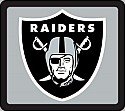
J.B. Polley was a member of John Bell Hood's Texas Brigade during the Civil War. I previously mentioned that there are a lot of books about the Texas Brigade but very little is written about Law's Alabama Brigade. It is important when researching a topic that your look into related topics and ideas. Since the Texas Brigade was within the same division as Law's and since both brigades fought together it is important to study Hood's famous brigade. Author J.B. Polley wrote a great book about his adventures within the brigade. As I was reviewing this important source an interesting quote about Robert E. Lee sprung out from the pages.
Lee receives, and rightfully so, a lot of the blame for the failure of the Confederacy at Gettysburg. Most of this blame is due to his combative nature as a commander and his impulsive attitude in battle. Polley writes:
"The truth is, that while he was a great general, a profound and wily strategist, a consummate master of the art of war, Robert E. Lee the commander of the Army of Northern Virginia, was in temperament a game cock. The mere presence of an enemy aroused his pugnacity, and was a challenge he found it hard to decline, and at Gettysburg, impossible....the pugnacity inherited from a long line of fighting ancestors thrilled the nerves of the Confederate commander and dominated an ordinarily cool judgement; the enemy invited and challenged a contest, and a contest he should have."
Polley even researched General Lees own report on Gettysburg to back up this statement. In his official report Lee wrote "It had not been intended to deliver a great battle so far from our base unless attacked. But coming unexpectedly upon the whole Federal army, to withdraw through the mountains with out extensive trains would have been difficult and dangerous." In a nutshell Lee's report tells me two things. First, he wasn't ready for a general engagement. This should not shock experts on the Battle of Gettysburg because Lee's three corps were spread throughout the countryside. Secondly, Lee might have been making an excuse for bringing on an engagement because he saw a chance for winning the war. Lee once wrote General Hood that he felt his men were "invincible" and since they had defeated or fought to a draw the Union Army of the Potamac in every battle since he took command then Lee's conclusion seems plausible. July 1st didn't help matters as the Army of Northern Virginia pushed back the Federal army to the ridges and hills beyond Gettysburg. If you research the battle you will no doubt come to the conclusion that Lee felt that one more push, one decisive blow would win a victory on Northern soil and put the Union in a perilous position. Lee was an aggressive commander and as author Shelby Foote once said "Gettysburg was the price the South paid for having R.E. Lee." Gettysburg cost Lee's army 1/3 of its fighting force and that was a heavy blow to the Southern cause. Lee gambled as he had on so many battlefields and every gambler must lose eventually. At sake was Southern independence and the Lee's gamble failed.
This infomation was taken from J. B. Polley, Hood's Texas Brigade, Dayton, OH: Morningside Bookshop, 1976.
Lee receives, and rightfully so, a lot of the blame for the failure of the Confederacy at Gettysburg. Most of this blame is due to his combative nature as a commander and his impulsive attitude in battle. Polley writes:
"The truth is, that while he was a great general, a profound and wily strategist, a consummate master of the art of war, Robert E. Lee the commander of the Army of Northern Virginia, was in temperament a game cock. The mere presence of an enemy aroused his pugnacity, and was a challenge he found it hard to decline, and at Gettysburg, impossible....the pugnacity inherited from a long line of fighting ancestors thrilled the nerves of the Confederate commander and dominated an ordinarily cool judgement; the enemy invited and challenged a contest, and a contest he should have."
Polley even researched General Lees own report on Gettysburg to back up this statement. In his official report Lee wrote "It had not been intended to deliver a great battle so far from our base unless attacked. But coming unexpectedly upon the whole Federal army, to withdraw through the mountains with out extensive trains would have been difficult and dangerous." In a nutshell Lee's report tells me two things. First, he wasn't ready for a general engagement. This should not shock experts on the Battle of Gettysburg because Lee's three corps were spread throughout the countryside. Secondly, Lee might have been making an excuse for bringing on an engagement because he saw a chance for winning the war. Lee once wrote General Hood that he felt his men were "invincible" and since they had defeated or fought to a draw the Union Army of the Potamac in every battle since he took command then Lee's conclusion seems plausible. July 1st didn't help matters as the Army of Northern Virginia pushed back the Federal army to the ridges and hills beyond Gettysburg. If you research the battle you will no doubt come to the conclusion that Lee felt that one more push, one decisive blow would win a victory on Northern soil and put the Union in a perilous position. Lee was an aggressive commander and as author Shelby Foote once said "Gettysburg was the price the South paid for having R.E. Lee." Gettysburg cost Lee's army 1/3 of its fighting force and that was a heavy blow to the Southern cause. Lee gambled as he had on so many battlefields and every gambler must lose eventually. At sake was Southern independence and the Lee's gamble failed.
This infomation was taken from J. B. Polley, Hood's Texas Brigade, Dayton, OH: Morningside Bookshop, 1976.





No comments:
Post a Comment